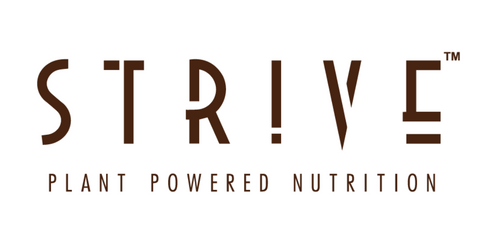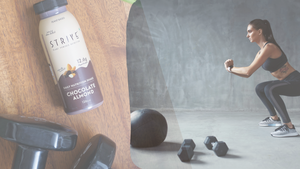What do you eat to get the most out of your workout, game or any other activity that leaves you breathless and sweating yet happy? This is a question that has been on the minds of everyone that has ever consciously and actively moved. Naturally, we had to get to the bottom of this question. Who better to pose this to than a Sports Nutritionist. And we just happened to know one of the best in the business. Shona Prabhu is the Co-founder of Nutrifymydiet and a sports nutritionist with a ton of experience. Here’s what we learned from our #FuelYourPlay session with Shona.
Checkout Shona’s impressive profile here: Nutrifymydiet | Personal Instagram | Work Instagram
To watch the Full IGTV Video session click here.
Arthi (Founder, STRIVE) skipped the warm-up and dove right into the actual questions.
What’s the ultimate pre-workout nutrition ritual check-list?
There’s no one-size-fits-all approach to fuelling before the game. Fueling your body and fueling right is crucial. The choice of nutrition depends heavily on the duration of workout and the type of workout you are engaged in. Having said that, here are a few things you can keep in mind while prepping for a session:
- Have a prep-meal 2 to 3 hours before a workout (mostly carbs+little protein).
- Follow it up with a top-up meal around 30 minutes to one hour before the session. Mostly carbs only for replenishing muscle glycogen. Fruits, bread, muesli, granola and oats are all great sources of carbs and easy on the stomach.
- Try keeping your pre-workout meal low in fat and protein. Food that’s hard to digest can impact the quality of your workout. You don’t want to feel bloated and heavy while moving.
- If your session is going to be longer than 60 minutes, load up on carbs. That’s your fuel!
- Always pay attention to your hunger and take care of it. If you ignore it, you can make bad food choices later on.
Carbs are your friend when it comes to a good workout session. If your carb intake is low, your body loses muscle mass as it is easier to convert muscles to energy in comparison to converting fat. Arthi stresses how important carbs are in recovering and restoring your body after a workout and the role of carbs in absorbing that protein. Shona agrees on the importance of carbs and elaborates that carbs are not your enemy, but poor quality carbs can cause weight gain. So you need carbs to fuel your workouts and to absorb your protein for better results.
Is it advisable to eat during a workout? If so, what’s right?
Our body usually stores carbohydrates as glycogen and uses it during training, especially when it is an anaerobic movement and can add - and high intensity sessions. It’s advisable to carry an energy bar or a banana to replenish the glycogen if your session is going to be longer than 60 minutes.
This might not work for everyone though. It’s important to customise it based on your activity. If you are a cyclist or a long-distance runner it is preferable to carry gels or drinks. People usually have BCAAs during a workout and Shona implies that it’s good to have a moderate amount of protein during a heavy workout.
Make sure you intake electrolytes as you lose water during a workout. It is helpful to include them when the session crosses an hour and humid conditions
What’s a good post-workout meal to complement the routine?
Protein consumption is necessary to ensure muscles heal and are restored. Proteins are building blocks for muscles. 10-15 gms of Protein is ample for recreational fitness enthusiasts actively engaging in activities of low-moderate intensity. Intense sessions might require about 25-30 gms, but that also depends on the person, their levels of fitness and other physical factors.
What’s the best time to have a post-workout meal?
Ideally, you should have it within 30 minutes of activity completion. Make sure there is a good mix of carbs and protein. Figure out what protein works for you depending on your values, fitness requirements, health conditions and taste preferences.
Pea, soy (and dairy) are considered to be complete proteins. One should be cautious of whey and artificial sweeteners as they can have an adverse effect on your digestive system. Whey-pollution is a serious stressor to the environment as well. Pea protein is far more sustainable than dairy, whey, egg based sources.
Arthi stresses on how sometimes self-educating and not working with a professional can be problematic as people tend to give up. It is important to make a plan and stick to it. Working with a professional helps people stay on track. Shona backs this up by chiming in with an example of someone whose doctor was Google. She struggled with losing weight even after working with a professional fitness expert. The challenge was connecting the dots effectively. Shona was able to help her achieve her fitness objectives and lose weight in 3 months.
Shona and Arthi concluded with emphasising on the importance of finding the right nutritionist and asking all the right questions.

